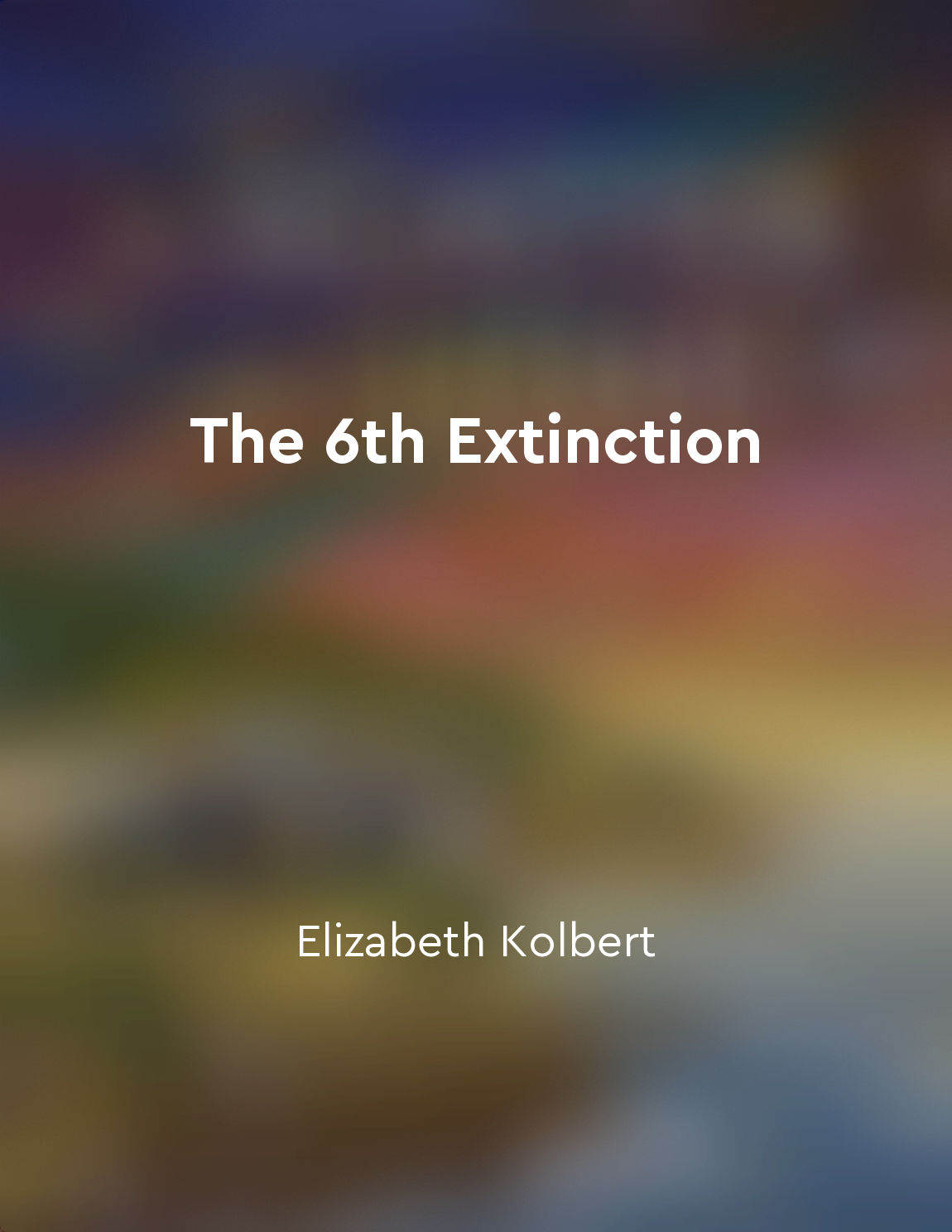Earth without us a resilient and enduring planet from "summary" of The World Without Us by Alan Weisman
Imagine a world where humanity suddenly disappears. Buildings crumble, roads crack, and nature slowly reclaims the land. This thought experiment prompts us to consider the resilience and endurance of our planet without human interference. In the absence of human activities, nature begins to heal itself. Plants grow through cracks in pavement, animals reclaim their habitats, and ecosystems balance themselves out. Over time, the earth proves to be remarkably resilient, adapting and thriving in the absence of human disruption. Without us, the planet reverts to a state of balance, where natural processes dictate the course of events. The earth's ability to regenerate and recover from the impacts of human activity is evident in this scenario. It serves as a reminder of the planet's capacity to endure and persist in the face of challenges. As we contemplate a world without us, we are forced to confront our own impact on the earth. The stark contrast between a world shaped by human hands and one left to its own devices highlights the fragility of our presence. It also underscores the enduring nature of the planet, which has the ability to outlast our fleeting existence. In the end, the concept of "Earth without us" challenges us to consider our role in shaping the world around us. It reminds us of the interconnectedness of all living things and the delicate balance that sustains life on this resilient and enduring planet.Similar Posts
Science and technology can help us address environmental issues
Science and technology play a crucial role in tackling the environmental challenges that we face today. By leveraging scientifi...
Cultivating resilience is necessary for survival
In the face of unpredictable challenges, societies must develop the ability to bounce back and adapt - in other words, resilien...
Collective action
In times of crisis, when people are faced with extreme shocks to their lives and livelihoods, it is often the case that individ...
Childhood curiosity can lead to a lifelong sense of wonder
In the life of every child, there comes a moment when curiosity awakens and begins to inquire about the world. This natural sen...
We have the power to create a sustainable future for all
The idea that we possess the ability to shape a sustainable future for all is a powerful one. It suggests that we hold the key ...

Geological wonders abound
The further we ventured into the earth's depths, the more we encountered the astounding geological wonders that lay hidden bene...

The Arctic is experiencing rapid changes due to global warming
The Arctic, a region known for its extreme cold and vast expanses of ice, is undergoing dramatic transformations as a result of...
Biodiversity is the key to a healthy ecosystem
Biodiversity is the variety of life forms that exist on Earth, encompassing all living organisms, from the smallest microorgani...
